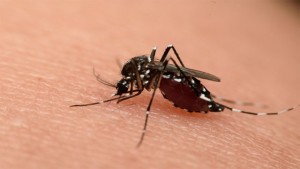 ST JOHN’S, Antigua, Wednesday May 11, 2016 – Antiguan women have been advised to put pregnancy on hold since the first case of the Zika virus was confirmed in the country last week. Dr Kimberly Mallin, director of the American University of Antigua (AUA) Health Center, made the recommendation during an appearance on the programme Big Issues.
ST JOHN’S, Antigua, Wednesday May 11, 2016 – Antiguan women have been advised to put pregnancy on hold since the first case of the Zika virus was confirmed in the country last week. Dr Kimberly Mallin, director of the American University of Antigua (AUA) Health Center, made the recommendation during an appearance on the programme Big Issues.
The Antigua Observer reports that Dr Mallin suggested that pregnant women could be tested twice for Zika, and women thinking of becoming pregnant, or of child-bearing age, could perhaps delay their plans until further notice. “If you have a choice and have time, I would suggest delaying getting pregnant,” Dr Mallin said, and encouraged those who are already pregnant to visit their medical practitioners and request to be tested for the virus.
“I would suggest that you get tested now and then again in the middle of the next trimester,” she said. Further advice to pregnant women included avoiding being bitten by the Aedes aegypti mosquito which transmits the virus, and using condoms for the duration of pregnancy in order to prevent the sexual transmission of Zika.
Already rife in South America and a growing threat to the Caribbean, Zika is blamed for thousands of babies being born with microcephaly, a condition characterised by abnormally small heads and underdeveloped brains.
Recent research has revealed that the virus could be responsible for more damaging neurological conditions affecting the babies of up to one-fifth of infected pregnant women. The World Health Organisation (WHO) has declared the disease a public health emergency and pregnant women have been advised not to travel to infected areas. Meanwhile, the Coordinating Representative for the Pan American Health Organisation (PAHO)/WHO for Barbados and the Eastern Caribbean, Dr Godfrey Xuereb, also contributed to the local discussion.
Dr Xuereb said that since Zika is mainly transmitted by the Aedes aegypti mosquito, a concerted effort should be made to eliminate all breeding sites around the homes and communities on the island. He added that the same mosquito transmits Dengue fever and Chikungunya, diseases that he said are far more hazardous and problematic during pregnancy. “Dengue is the most problematic of those and what we recommend to all women, who are pregnant or are thinking of becoming pregnant, as we recommend to everybody else, is to protect themselves against mosquitoes,” he advised.
Dr Xuereb also sought to assure pregnant women that not all of them who get infected with Zika would give birth to a baby with microcephaly. “Not every pregnant mother infected with Zika will have a baby with the disorder. In fact, here in Barbados we have had one mother that was infected and has delivered a nice healthy baby. “We are monitoring some of the others that are currently pregnant.
“In Martinique, in Guadeloupe they have been monitoring the majority of cases they have of mothers that have been infected with Zika have delivered health babies. Unfortunately, there have been a couple who have had microcephaly babies,” Dr Xuereb said. The news comes at a time when some pregnant women are clamouring for abortion pills in countries where terminations are illegal.
